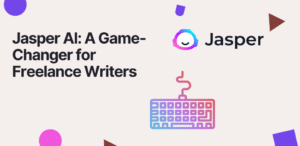Want to learn Swift but don’t know how? Learn Swift quickly and easily with the power of AI and modern tools like Jasper, ChatGPT, or copy.ai.
In this prompt list, you will find the best prompts to help you learn the Kotlin programming language. These prompts cover various aspects of Kotlin, such as basic vocabulary, grammar, collections, error handling, file handling, and concurrency.
You can copy and paste the prompt into your favorite AI text generation tool.
Table of Contents
Basic Concepts
Learning the basics of Kotlin is the first step to mastering this programming language. This category will help you get started by providing prompts for learning basic vocabulary.
Grammar
Grammar is an important aspect of any language, including Kotlin. This category will provide prompts for learning the grammar rules of Kotlin.
Data Types
Understanding data types is essential for working with Kotlin. This category will provide prompts for learning the various data types in Kotlin.
Functions
Functions are an essential part of Kotlin programming. This category will provide prompts for learning how to create and use functions in Kotlin.
Classes
Classes are a fundamental concept in object-oriented programming, and Kotlin is no exception. This category will provide prompts for learning how to create and use classes in Kotlin.
Collections
Collections are a crucial aspect of Kotlin programming, and this category will provide prompts for learning how to work with various collection types.
Error Handling
Error handling is an essential part of writing robust and reliable code in Kotlin. This category will provide prompts for learning how to handle errors in Kotlin.
File Handling
Working with files is a common task in many programming projects, and Kotlin provides many convenient tools for file handling. This category will provide prompts for learning how to work with files in Kotlin.
Concurrency
Concurrency is an important topic in modern programming, and Kotlin provides many tools for working with concurrency. This category will provide prompts for learning how to work with concurrency in Kotlin.
How useful was this post?
Click on a star to rate it!
Average rating 4.6 / 5. Vote count: 8
No votes so far! Be the first to rate this post.







